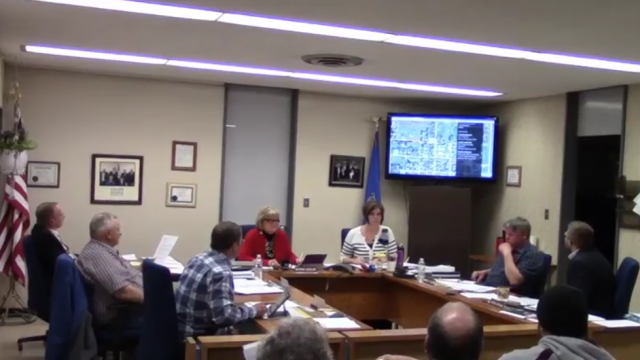Lawmakers Should Make Regular Public Input a Requirement at Public Meetings

North Dakota’s open records and open meetings laws are very, very good. But one loophole in them is that, while they require that almost all public meetings be open to the public, there is no legal requirement for public involvement in those meetings.
In my experience most local governing entities in the state – from school boards to county commissions, etc. – do a pretty good job of allowing public input. But lately some commissions have begun to make it clear that they don’t want the public speaking at their meetings.
A year ago I wrote about a Valley City man banned from speaking to the local city commission because of what city leaders thought he might have said. In June the Ramsey County Commission in Devils Lake voted to remove public input from their meeting agendas. Last night that same commission sparred over a motion to put input from the public back on the agendas.
April Baumgarten has a report for the Grand Forks Herald. You can watch video of the feisty discussion below:
I’m not much of a populist – you can read my case for getting rid of our state’s initiated measure process here – but I don’t think elected leaders should be able to prevent the public from ever speaking at public meetings.
Let me be clear that I don’t think any member of the public has the right to be disruptive at a public meeting. But I do think local leaders should be legally required to afford the public some regular opportunity to provide feedback. The Legislature, which convenes in January for another session, ought to make this so.
Many of our state’s various governing entities do allow for for public input, including the Legislature where testimony on every bill being considered is open to the public. But right now allowing public input is optional, and it’s a bit too easy for elected leaders to brand what might be perfectly legitimate criticism as “disruptive.”
Lawmakers could pass a law requiring the regular inclusion of public comment. Not necessarily at every meeting, but certainly at some regular interval. The law could also stipulate that speakers be afforded some minimum amount of time to speak – say, five minutes? – but also a maximum amount of time so that every meeting doesn’t turn into a marathon of speechifying, filibustering cranks.
Also, the law could include criteria for the exclusion of protests or public comment that truly meets the definition of disruptive. The law need not require that elected leaders be shouted at or verbally abused.
I get why some local leaders are frustrated. Dealing with the public can be a headache. Not everyone chooses to express their criticism in an appropriate fashion. After 13 years of running a popular online political forum, I know a thing or two about this.
That said, if you don’t want to deal with the public, you shouldn’t be in public service.




